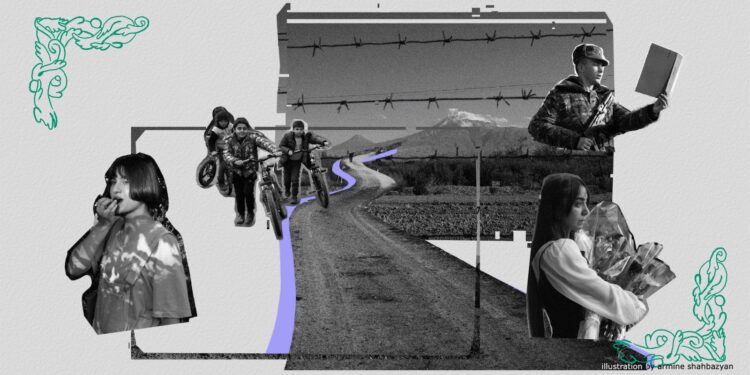Raw & Unfiltered
The Last Bard of Leninakan
Jag Bambir, one of Armenia’s most beloved musicians, is an early pioneer of the rock and roll movement in the former Soviet Union. In this piece, Raffi Meneshian reviews a recent concert Jag gave in Gyumri in April where he presented his latest creation – Treaton.
Russian Armenians: Navigating Identity
In the traditional Diaspora narrative, American-Armenian, Syrian-Armenian and many other options exist, but Russian-Armenian has never been on the list according to journalist Grigor Atanesian who was born and raised in Saint Petersburg. He says that you’re either Russian or Armenian. "Visiting Armenia, we were the Russian kids who found love in a hopeless place," he writes.
Where Have the Women Gone?
The voices of women writers occupy a small space in the Armenian literary canon. They are for the most part absent in literature textbooks in Armenia with the exception of a few women writers, mentioned only in passing. Contemporary women writers, translators and educators answer the question: Where have the women gone?
Impunity for Domestic Violence in Armenia’s Criminal Justice System
Domestic violence is a critical issue facing women globally, and women in Armenia are not immune from it. In this piece, Ani Jilozian of the Women's Support Center based in Yerevan highlights the current situation in Armenia and the importance of passing legislation on domestic violence.
Reimagining Memory
Every year the Foundation for the Preservation of Wildlife and Cultural Assets organizes the collection of flowers laid at the Genocide Memorial on April 24. The flowers are then recycled into handmade paper.
The Intellectual Crisis of the Armenian Reality
Varak Ketsemanian presents a critical analysis of Sona B. Dadoyan’s work, “2015, The Armenian Condition in Hindsight and Foresight: A Discourse,” a timely and critical piece of scholarship that sheds light on the intellectual crisis of the 21st century Armenian reality.
Zoryan Institute: Serving the Cause of Scholarship
This year, the Zoryan Institute for Contemporary Research and Documentation marks its 35th anniversary. The Institute's core concept is to serve the cause of scholarship and public awareness relating to issues of universal human rights, genocide and diaspora-homeland relations.
Aurora Prize for Awakening Humanity 2017
Awarded on behalf of the survivors of the Armenian Genocide, co-founders of the initiative Ruben Vardanyan and Noubar Afeyan announced the nominees for the Aurora Prize for Awakening Humanity 2017 in Yerevan on April 24.
102 Years On: The Transformational Power of Hope
We need a social reformation to find the path to hope and the transformation starts with ourselves. Ahead of the 102nd anniversary of the Armenian Genocide, Maria Titizian writes about the importance of having hope.
The Go Between: A Challenge
In this post-Election essay, Paul Chaderjian reflects on how a group of his peers, men and women from all walks of life, made a collective effort on April 2 to serve as citizen observers in the homeland.












